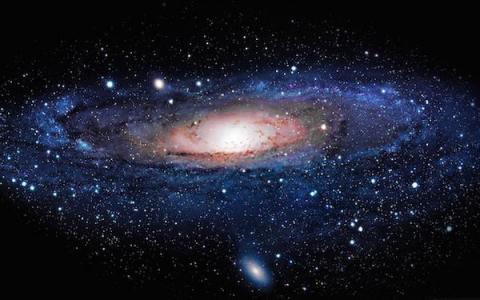Life in the Cosmos Is Rare After All
There is no doubt that SETI – the search for extraterrestrial intelligence – has received a huge fillip from the recent discovery of hundreds of extra-solar planets. Astronomers think there could be billions of earthlike planets in our galaxy alone. Clearly there is no lack of habitable real estate out there. But habitable implies inhabited only if life actually arises.
I am often asked how likely it is that we will find intelligent life beyond Earth. The question is meaningless. Because we don’t know the process that transformed a mish-mash of chemicals into a living cell, with all its staggering complexity, it is impossible to calculate the probability that it will happen. You can’t estimate the odds of an unknown process. Astrobiologists, however, seem more preoccupied with the chances that microbial life will eventually evolve intelligence. Although biologists can’t do the math on that either, at least they understand the process; it is Darwinian evolution. But this is to put the cart before the horse. The biggest uncertainty surrounds the first step—getting the microbes in the first place.
Carl Sagan once remarked that the origin of life can’t be that hard or it would not have popped up so quickly once Earth became hospitable. It’s true that we can trace the presence of life on Earth back 3.5 billion years. But Sagan’s argument ignores the fact that we are a product of the very terrestrial biology being studied. Unless life on Earth had started quickly, humans would not have evolved before the sun became too hot and fried our planet to a crisp. Because of this unavoidable selection bias, we can’t draw any statistical significance from a sample of one.
Another common argument is that the universe is so vast there just has to be life out there somewhere. But what does that statement mean? If we restrict attention to the observable universe there are probably 1023 planets. Yes, that’s a big number. But it is dwarfed by the odds against forming even simple organic molecules by random chance alone. If the pathway from chemistry to biology is long and complicated, it may well be that less than one in a trillion trillion planets ever spawns life.
Affirmations that life is widespread are founded on a tacit assumption that biology is not the upshot of random chemical reactions, but the product of some sort of directional self-organization that favors the living state over others—a sort of life principle at work in nature. There may be such a principle, but if so we have found no evidence for it yet.
Maybe we don’t need to look far. If life really does pop up readily, as Sagan suggested, then it should have started many times on our home planet. If there were multiple origins of life on Earth, the microbial descendants of another genesis could be all around us, forming a sort of shadow biosphere. Nobody has seriously looked under our noses for life as we do not know it. It would take the discovery of just a single “alien” microbe to settle the matter.
Paul Davies

